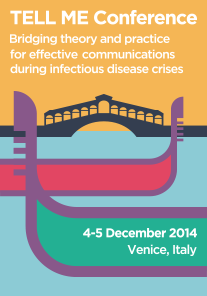5. The Right to Private and Family Life
In the ECHR, article 8 (protecting the right to private and family life) has two principle paragraphs. The first describes the rights that the article protects i.e. those associated with private and family life. The second contains potential reasons that might justify infringement of these rights. One such reason is the protection of public health. If the rights in the first paragraph are engaged by an action that it is necessary in a democratic society and in accordance with the law it may be permissible if the aim of the action is inter alia to protect public health.
Unless these criteria are met any breach of the rights protected by article 8 will not be permitted. article 8 of the ECHR is of a potentially enormous application. This is because there are any enormous variety of actions (and also inactions) that a state can engage in which can impact on an individual’s ability to enjoy his or her family life as he or she might so desire. The right to private life covers for example the right to develop one’s own personality, in addition to creating and maintaining relationships with others. This ability to form relationships is not restricted to small and intimate groups of individuals such as family or partners but is understood to include an ability for an individual to form relationships with wider circles of human beings that might live in society. This can be in areas where there are both positive and negative duties upon states i.e. duties to act and duties not to interfere.
Obligations to Make Certain Treatments Available
The rights contained in article 8 of the ECHR are not only negative, in that they envisage restraining the activity of the state but can also be positive in that can also envisage the state taking certain steps to protect individual private and family life. This means that for example a failure to provide adequate healthcare can also violate an individual’s rights under article 8. This might be for example because the necessary treatment would allow the individual to live at home and maintain a close link with their family. The civil and political ‘right to a private and family life’ can therefore complement the social and economic ‘right to health’. As described above however the benefit of making use of a civil and political right is that they are usually easier to enforce upon states than their social and economic counterparts. It is important to note however that the European court of Human Rights has afforded a ‘significant margin of appreciation’ to states in deciding which treatments they are to fund and which they are not. The court has stated that whilst article 8 could be used to give voice to complaints regarding public funding and treatment procedures it accepted that it is the states themselves that are often in the best position to decide how best to achieve the balance between the various competing needs for healthcare that exist within a society.
Confidentiality
Individuals have a general right to expect confidentiality regarding their medical status. The EtCHR has recognised that the right to respect for private and family life includes a right to respect for medical information. The EtCHR has also clearly linked the concept of data protection to that of privacy and of being important to the enjoyment of a private and family life. Data protection requirements for medical data are governed primarily by a directive (Directive 95/46/EC), that has been transposed into law in each member state. This regime also governs medical data where such data is classified as being sensitive in nature and therefore attracts the highest level of protection. Data protection requirements in Europe for medical data may be respected inter alia by the use of anonymised data, or where the data subject gives their express consent for the use of non-anomynised. The use of non-anomonous data however may be required in the context of an epidemic. Such data may, under the European Data Protection regime, be processed without individual consent if doing so would be in the public interest. This however requires that legislation governing such processing is in place before hand. This may be important in the context of epidemics where centralized bodies at the national and international level are trying to gather information on the severity and rate of transmission of an infectious agent on the ground.
In addition the use of personal information that has not been anonymised can be useful in tracing the origin of an infection in a particular area. Indeed, surveillance has become an important approach of modern communicable disease detection and follow-up. Such surveillance has been defined as the “systematic collection, analysis and interpretation of health data essential to the planning, implementation and evaluation of public health practice closely integrated with the dissemination of these data to those who need to know” (Thanker & Berkelman, 1998). Access to such information may be of crucial importance in allowing responses to an epidemic to be planned or modified as needed. In the initial phases of an epidemic detailed information on individuals who have become infected and their lifestyles will be needed in order to discern the likely rate of transmissibility of the virus.
It is conceivable that some patients may not want information about themselves their location and their lifestyle to be passed by their doctors to external bodies. In the case of Z v Finland the court outlined that only in certain instances where it is clearly in the public interest can such details be revealed without individual consent. Problems have a arisen in certain states where medical data is not adequately protected. This can give rise to stigmatization which can inter alia mean that individuals fail to seek treatment as a response. Adequate preparation will be important for states in ensuring that they are compliant with data protection requirements and their wider duties to protect the private and family lives of individuals. In terms of data protection this will involve a anonymising all personal data where possible. Where this is not possible it will be important to have pre drafted legislation in place allowing for such processing in the public interest. This is a process that will obviously need to be in place before an epidemic takes place. Such legislation will have to be sufficiently precise to comply with the legal requirement of foreseeability but also to allow sufficient flexibility to deal with future unknown and unexpected pandemics.


